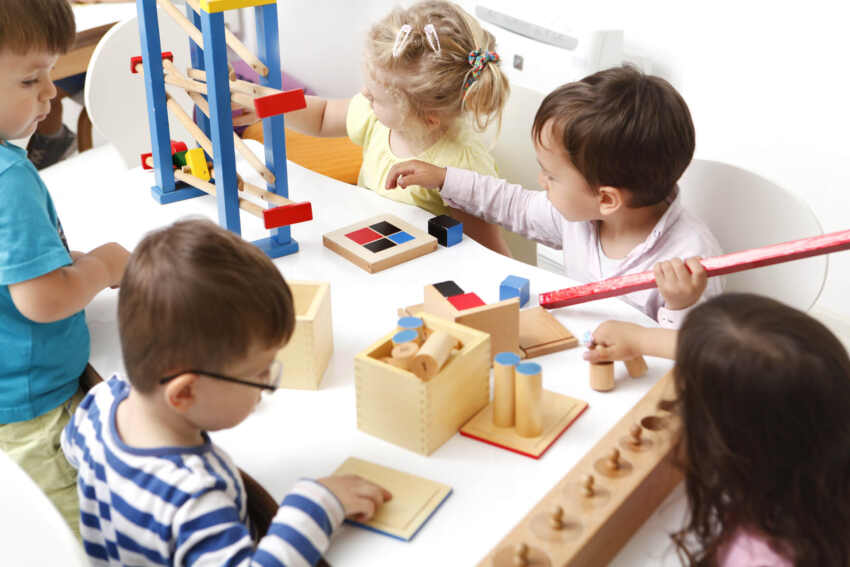The Role of a Montessori Teacher in Fostering Child-Led Learning -Montessori education is a unique approach to teaching and learning that places a strong emphasis on child-led learning. Central to this approach is the role of the Montessori teacher, who plays a crucial role in creating an environment that promotes independence, curiosity, and self-directed learning in children.
Montessori education is a unique approach to teaching and learning that places a strong emphasis on child-led learning. Central to this approach is the role of the Montessori teacher, who plays a crucial role in creating an environment that promotes independence, curiosity, and self-directed learning in children.
In a Montessori classroom, the teacher is often referred to as a “guide” rather than an instructor. This is because the teacher’s role is not to impart knowledge to students, but rather to facilitate their learning and development. The teacher creates an environment that allows children to explore and discover their interests and passions, guiding them as they develop new skills and knowledge.
1. Creating a Prepared Environment
One of the key responsibilities of a Montessori teacher is to create a prepared environment that is conducive to self-directed learning. The classroom is carefully arranged to provide children with easy access to materials and resources that are designed to promote exploration, creativity, and independence. The teacher ensures that the environment is orderly and aesthetically pleasing, with furniture and materials that are child-sized and easily accessible.
The teacher also takes care to provide a range of activities and learning opportunities that cater to the diverse needs and interests of the children in the classroom. This may involve setting up different “stations” where children can engage in activities such as art, sensory exploration, language development, and practical life skills.
2. Observing and Guiding
Montessori teachers are trained to be keen observers of children’s behavior, interests, and developmental needs. By closely watching how children interact with their environment and each other, teachers are able to identify individual strengths and challenges, as well as opportunities for growth and development. This observation allows teachers to provide appropriate guidance and support to help children achieve their full potential.
With this in mind, a Montessori teacher takes on the role of a facilitator, intervening only when necessary to support children’s learning. They might offer gentle guidance, demonstrate how to use a material, or suggest new challenges and activities to stretch the child’s abilities.
3. Supporting Independence and Self-Discipline
In a Montessori classroom, children are encouraged to take responsibility for their own learning and behavior. The teacher fosters a sense of independence by allowing children to make choices about their activities, encouraging them to problem-solve and work through challenges on their own, and guiding them as they develop self-discipline and self-regulation.
The teacher plays a crucial role in modeling and reinforcing positive behaviors, as well as helping children to develop strategies for managing their emotions and interactions with others. Through the teacher’s gentle guidance, children learn to respect the rights and needs of others, to take care of their environment, and to develop a sense of personal responsibility.
4. Nurturing a Love of Learning
Ultimately, the role of a Montessori teacher is to create an environment that nurtures a love of learning in children. By fostering curiosity, independence, and a sense of wonder, the teacher helps children to develop a lifelong passion for knowledge and exploration. The teacher encourages children to follow their interests and passions, providing them with the support and resources they need to delve deeply into subjects that capture their imagination.
In conclusion, the role of a Montessori teacher in fostering child-led learning is a complex and multi-faceted one. The teacher creates a prepared environment that promotes independence, observes and guides children as they explore and learn, supports their development of self-discipline and independence, and nurtures a love of learning that will last a lifetime. By embracing this approach, the Montessori teacher creates an environment where children can thrive and develop the skills and abilities they need to succeed in an ever-changing world.
Nidhin
For More Details Call: +917510220582

